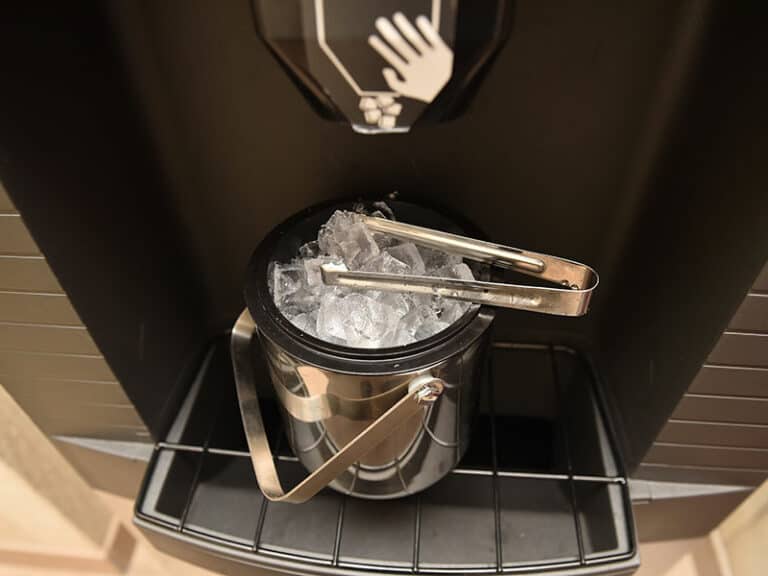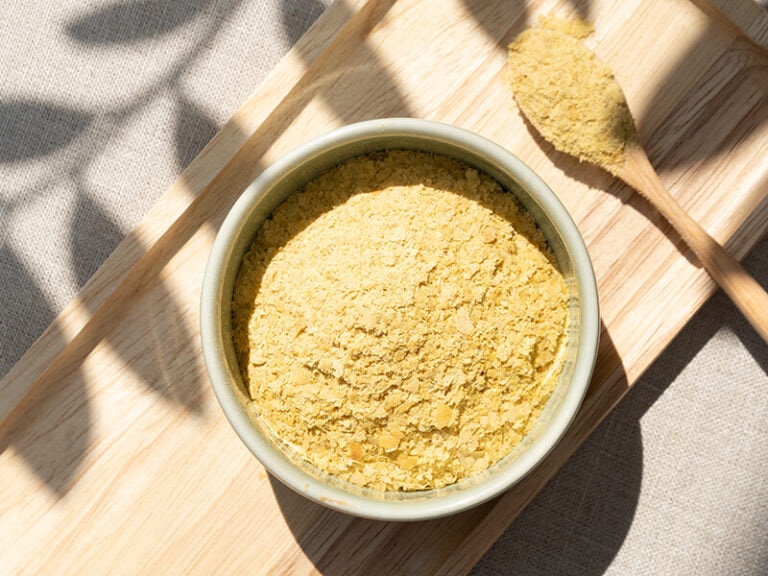Can you use expired butter is a common question for many kitchen lovers. Some even doubt whether butter really expires. But first, are you thinking that expired butter is obviously spoiled? If so, then this article will help you clear up this common misunderstanding.
Not stopping there, you will also know the signs of bad butter, what happens when you eat it, and how to better preserve butter through this post. A lot of useful information is waiting for you below!

Butter
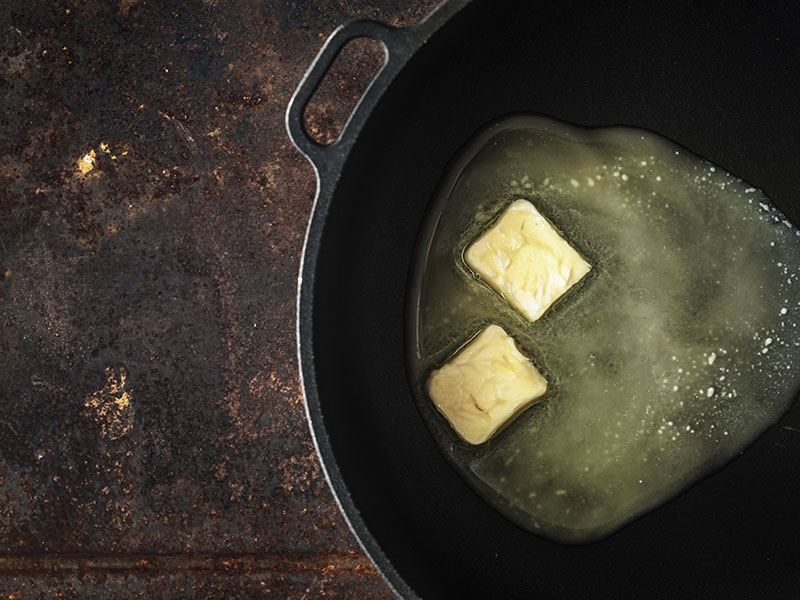
First, it is necessary for you to know the main components of butter.
Butter is considered a superfood with high nutritional content. Butter is usually produced by a special process of coagulating milk from animals and removing whey, so its main components are mainly fat (~80%), water (~15%), and protein (~5%).
Butter can be used to process many delicious sweet treat varieties + ( type of dessert) and dishes, hence being one of the indispensable ingredients of many households.
Does Butter Expire?
Butter certainly does expire and go bad eventually, no matter how you store it.
However, there is one first thing that you need to clarify: expired butter does not equal spoiled butter. In other words, the butter will not instantly turn bad at midnight of the expiration date. (1)
So, Can You Eat Expired Butter?
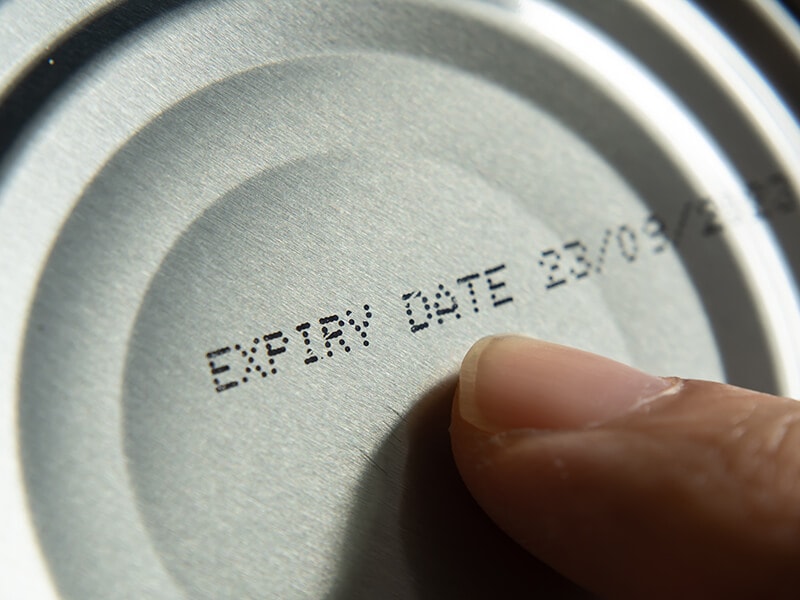
Based on the above information, you must have got the answer, right? Yes, you probably can still eat expired butter before it really turns bad. Remember that there is still a limited time, and it is not recommended in certain circumstances.
Depending on where and how you store your butter, its real shelf life will vary accordingly. If not stored properly in favorable conditions, the butter can even go bad before the expiry date printed on the package.
So, once your butter has crossed its expiration date, check for any signs that your butter has gone bad. If you cannot find any and you are sure that you have preserved it properly, it is generally still safe to use.
How To Know If Butter Has Gone Bad?
Like many other dairy foods, butter when turning bad often shows pretty obvious signs that you can see through various factors.
Color

One of the common signs of spoiled butter is discoloration. It can become lighter or darker, and there would be a stark contrast between the inside and outside of the butter after being cut.
When left for long enough, butter can get moldy with unusual blue, green, white, brown, or black spots. This phenomenon is quite rare because butter often goes rancid long before going moldy. So if you notice this sign, you should discard the butter immediately. (2)
Texture
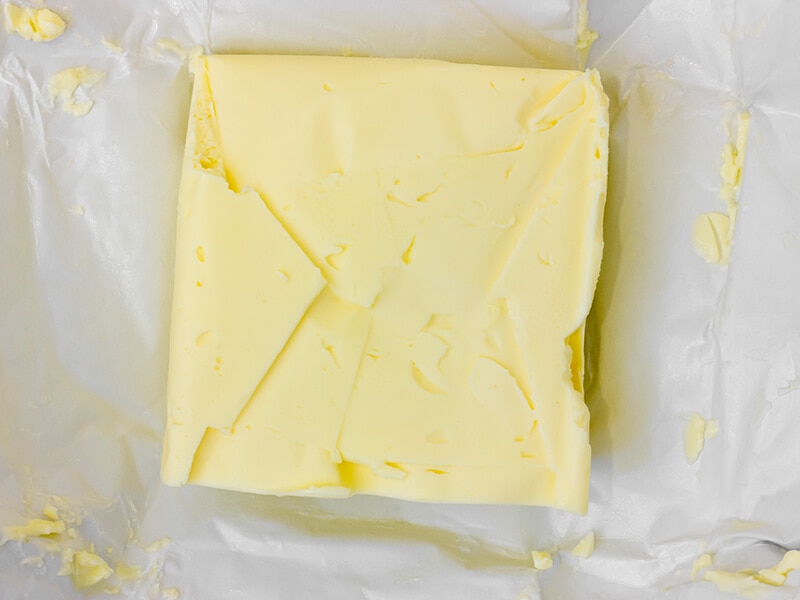
If the butter is too soft, melted or too hard, dry and hard to spread, or even cracked, those are signs that the butter is old and may not be suitable for eating.
Odor
Besides the visible signs, you can also tell if the butter has gone bad by its rancid, sour smell, which is caused by oxidation. Bad butter has an unpleasant smell, often described as an off-putting vomit-like odor, and is easy to identify.
However, the smell of butter can also be affected by several other factors when you don’t store it correctly causing it to absorb odors from other foods in your refrigerator.
Therefore, you need to carefully determine whether it is really the smell of rancid butter to avoid throwing away the fine butter.
Taste
Finally, after checking all the above factors, if you are still not sure about the quality of the butter, give it a taste test (a small amount of rancid butter won’t hurt your health).
Old butter has a terrible sour and rancid taste. It can be so strong that it can ruin the flavor of any dish that contains it in even a small amount. Thus, you will surely realize whether your butter is still edible immediately.
How About Spray Butter?
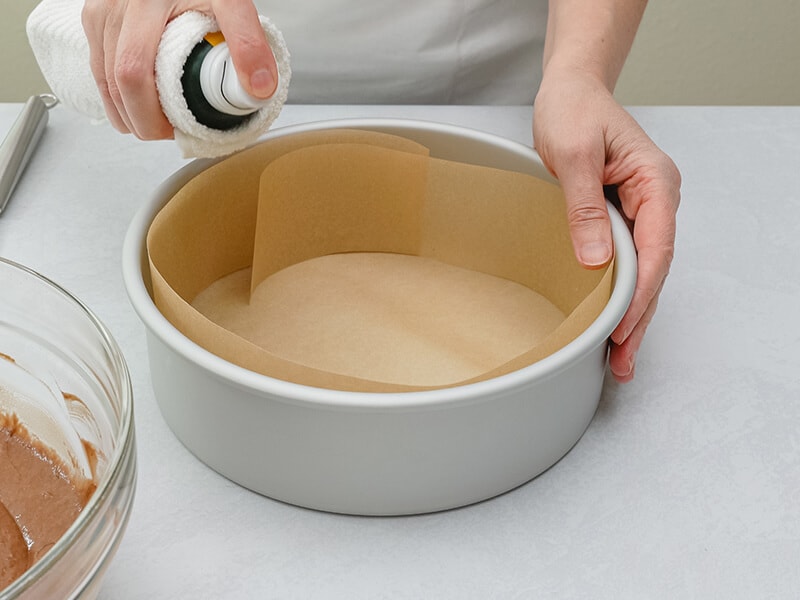
Some people tend to prefer spray butter and may have the same questions about its expiration.
So, spray butter does last remarkably longer than conventional butter, yet still will be expired and spoiled at some point. Generally, being properly preserved, cooking spray butter can last up to 2 years.
However, it is recommended for buyers to use spray butter within 12 months, when it can stay at the best quality.
And similar to regular butter, you need to look out for mentioned signs of spoilage (color, texture, smell, and taste) to know when to discard the spray butter.
In addition, you may notice the can being leaky, rusty, bulging, or dented. That is also when you should quickly remove your spray butter.
What Happens If You Eat Gone-Off Butter?
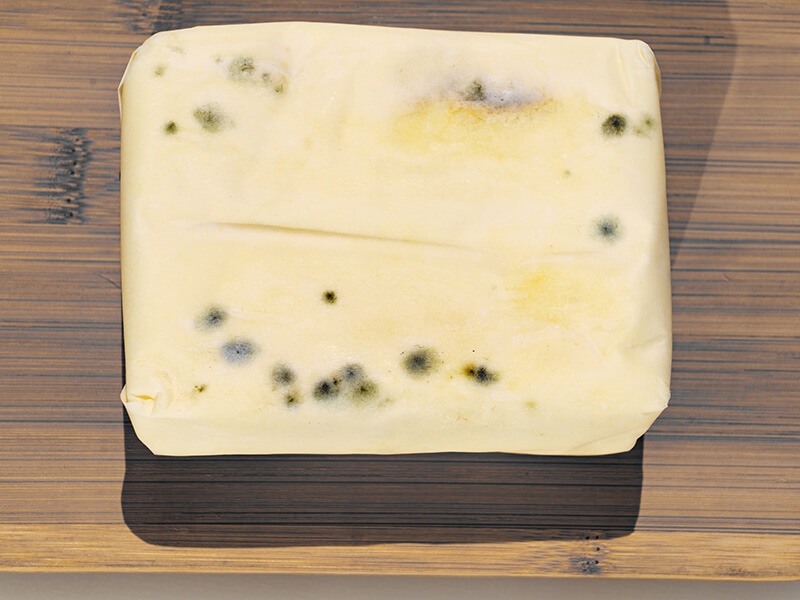
Now, maybe this is the question you should be concerned about because eating rancid butter does bring adverse effects.
However, even in this case, please don’t panic because its effect is not too significant. There have never been any documented cases of food poisoning from butter, and eating bad butter is also unlikely to make you sick, let alone kill you.
If it has any effect, then perhaps bad butter normally just makes you feel extremely uneasy and disgusted because of its sour and heavy taste. If you have a sensitive stomach, you may experience abdominal pain or discomfort for a little longer.
The reason behind this insignificant influence could be that you normally only eat or use a minuscule proportion of butter for processing. Also, the taste of spoiled butter is so horrible and recognizable that most of the time, anyone who eats it tends to spit it out immediately.
This means that the impact of bad butter can become serious if you use it in large enough portions, especially when it has already developed mold – an indicator of bad bacteria.
In addition, rancid butter tends to lower your Vitamin E and B stores, so avoiding using it is certainly essential.
Shelf Life of Butter – How Long Is Butter Good Past The Expiration Date?
It is helpful for you to know how long butter usually lasts to estimate how much butter you should keep in your home or how safe it is to use past-by-date butter.
Unlike other dairy products, butter has a rather long shelf life as it is mainly fat (high-fat content of at least 80%) and contains less water and lactose, which is the main cause of making most dairy products spoil quickly.
Fats do not deteriorate easily but are natural preservatives that help butter keep its good shape for a long time. It can undergo oxidation that causes the butter to go rancid but has a very low risk of bacterial contamination.
That is why mold growth on butter takes a long time, and it is rare for anyone to experience serious health effects from butter.
Normally, the expiry date on packaged butter is 3-6 months from the manufacturing date. That is the length of time a manufacturer can commit to the best quality and taste of their butter products.
However, the actual shelf life of butter is often longer than that depending on many aspects, specifically:
Opened Butter or Unopened Butter?
Knowing how to store it properly, you can continue to use opened butter for 1-2 months after the printed date on the package or up to 2-3 months for unopened butter (in the refrigerator).
Butter Type

You should also consider what type of butter you have. Unsalted butter or salted butter? Oil-free butter or oil-based butter? And some people even mistake margarine for butter. (3)
In general, butter with added salt, oil, or seasonings lasts twice as long after the expiration date as pure butter.
Despite looking pretty similar to butter and also being one of the common seasonings in cooking that give food a rich aroma and greasy taste, margarine is mainly made from fats and oils of vegetable origin.
Additionally, it also has water, skimmed milk, and some other additives, which make it last longer than butter. (2-3 months if opened and 4-5 months if unopened).
Storage
The rancidity of butter is largely influenced by environmental factors, mainly heat, light, and air, which all have a detrimental effect on the fat. The lower the temperature, the longer the butter may last.
Room Temperature
If you store your butter on the counter or table, it will last for up to a week. However, it is best to consume the butter as early as 1-2 days after the expiration date as high temperatures will cause its flavor to go rancid quickly. (4)
Refrigerator (40°F or lower)
Butter stored in the refrigerator at 40°F or below can last for 1-3 months (USDA)
Freezer
Freezing makes a big difference for butter, especially salted butter, as it can help expired butter last 6-9 months or even a whole year with certain types of butter along with particular preservation.
It can be seen that the freezer is the environment that helps preserve butter for the longest time; however, ironically, that doesn’t mean that the quality of the butter will remain intact. Over time, butter may be still usable, but will gradually lose its freshness and flavor.
In short, here is butter’s shelf life after the expiration date according to its storage (from shortest to longest)
Keep in mind that the numbers above are only estimates of how long butter will last past its expiration date, provided it is stored properly in an airtight container or well-covered with specialized wrapping.
Don’t hesitate to get rid of the butter if you notice any spoilage.
Better Butter Storage – Tips to Effectively Preserve Butter
There is one thing I have repeated quite a few times in this article to emphasize its importance: storing butter properly. So what can be called a proper method of preserving butter, and how can you do it? Here are some effective tips for you!
Choose The Suitable Storage Based On Your Own Uses
First and foremost, you need to plan how long you will consume your butter, depending on which, you can flexibly decide your storage. For example,
Case 1: You Want To Keep Your Butter For As Long As Possible
In the previous section, you must have noticed that considering the order of butter’s shelf life in the three most common environments, the butter will last longest in the freezer, followed by the refrigerator, and shortest at room temperature.
So, with this intention, the freezer will be the best storage option for you.
Case 2: You Will Consume All The Butter Only In A Few Days
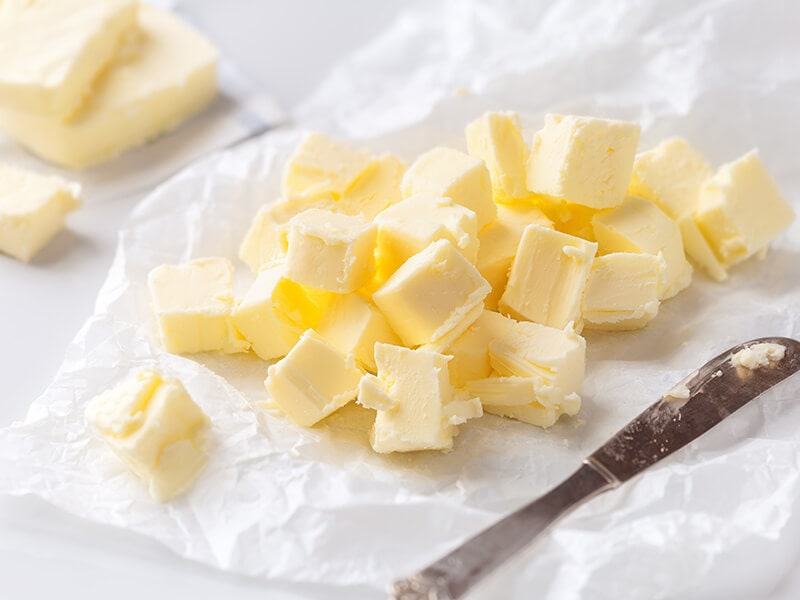
In this case, freezing butter may not be necessary. In contrast, it could be inconvenient as you may have to waste a considerable amount of time waiting for the butter to thaw before cooking.
Thus, you can simply keep the butter in the fridge or on the counter if the room temperature is not too hot where you live (you must refrain from storing the butter in more than 77°F atmosphere).
Salted butter can even come out fresher at room temperature because salt reduces the water content in butter, preventing bacterial growth.
Case 3: You Want To Ensure Both Butter’s Longevity And Ease Of Use.
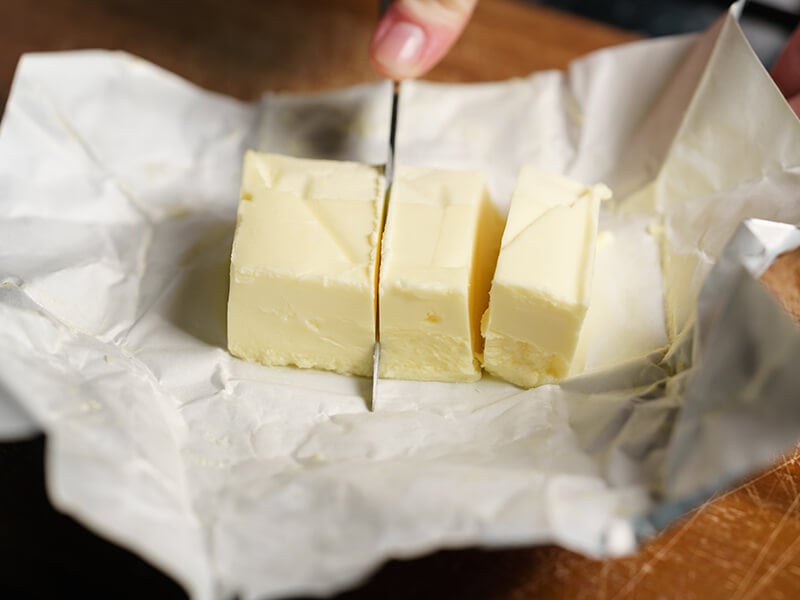
Now, you need a more flexible measure. And my advice is to keep a small amount of butter at room temperature and store the rest in the fridge or freezer.
Cover Butter Tightly In Dark And Close Places
The shelf life of butter is not only determined by the place of storage or temperature, but also by light and air.
So regardless of the storage, make sure your butter is always well stored and covered in a dark and airtight environment.
You should put the butter in an airtight container, a special dish with an airtight lid, or for the best, wrap it in aluminum foil or food wrap to keep out air, direct light, and potential contaminants.
Such lack of heat, light, and air will inhibit the oxidation process and the growth of mold.
Furthermore, because of the nature of butter which is very easy to absorb a lot of surrounding substances, especially the smell, being well wrapped will help the butter to limit the absorption of odors from foods around it.
This will usefully prevent the butter from producing an unpleasantly strange smell when it has not gone bad.
Extra Tips For Each Type Of Storage
In more detail, you can apply the following tips to optimize your butter preservation in different environments.
In The Freezer
If you don’t plan to use the butter soon and want to keep it for a long time, wrap it twice and put it in the freezer to keep it fresh.
Take a look at 3 easy ways to freeze butter for a year.
At Room Temperature
If you want to store butter at room temperature, store it in an airtight container in the kitchen cupboard to minimize light. When storing butter at room temperature, a high-quality butter keeper + (best butter keeper) can be of great help.
Using a butter keeper (butter bell) to keep your butter fresh and soft at room temperature.
In The Fridge
If you want to store your butter in the fridge, make sure to keep it in a deep and separate spot inside the fridge (slightly away from other foods) instead of the shelves on the door to avoid temperature fluctuations when you keep opening and closing your fridge in a day.
You can learn this butter-saving tip for extra convenience.
Besides, make sure your hands or any equipment you use when handling butter are clean to avoid cross-contamination.
NB: To be safe, expired butter should be melted and used in cooking instead of eating directly with bread.
FAQs
Still wondering about butter and how to preserve it? Check out some people’s most asked questions, maybe you’ll learn something you need.
Butter Expired? Don’t Be So Quick To Toss It!
Now that you know that expired butter does not instantly go bad, to avoid food waste, please don’t rush to throw away those delicious pieces of butter.
Moreover, why don’t you try the butter preservation tips above to see if they really work? I believe you will save a lot of butter and can keep your butter fresh for a long time.
And finally, if you find this post useful, please spread the information to everyone around so that no one has to waste fine butter accidentally anymore. Thank you, and have a nice day!
References
- ASKUSDA.
- Food Safety and Inspection Service. Molds on Food: Are They Dangerous? | Food Safety and Inspection Service.
- Butter vs. margarine (2020) Harvard Health.
- ASKUSDA.




